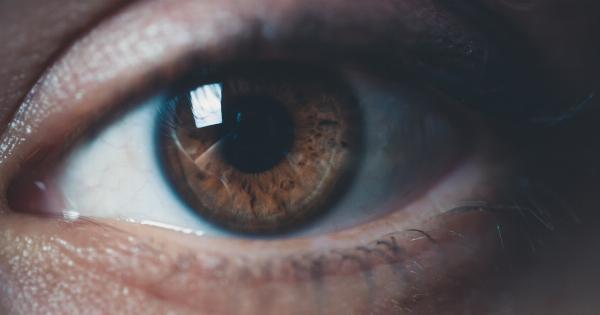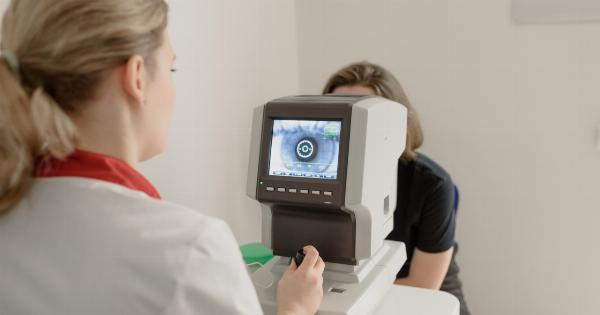Retinal detachment is a serious eye condition that occurs when the light-sensitive layer of tissue at the back of the eye, known as the retina, is lifted or pulled away from its normal position.
This separation prevents the retina from functioning properly, leading to vision loss if left untreated. Retinal detachment requires prompt medical attention to prevent permanent vision impairment or blindness.
Causes of Retinal Detachment
Retinal detachment can be caused by several factors, including:.
- Trauma to the eye
- Advanced age
- Family history of retinal detachment
- Previous eye surgeries or procedures
- Diabetic retinopathy
- Severe nearsightedness (myopia)
In some cases, retinal detachment can occur spontaneously without any identifiable cause.
Symptoms of Retinal Detachment
The following symptoms may indicate retinal detachment:.
- Blurred or distorted vision
- Floaters, which are small specks or spots that float across the field of vision
- Flashes of light in the affected eye
- A shadow or curtain obstructing a portion of the visual field
- A sudden decrease in vision
If you experience any of these symptoms, it is crucial to seek immediate medical attention to prevent further damage to your retina.
Diagnosing Retinal Detachment
To diagnose retinal detachment, an eye specialist will perform a comprehensive eye examination, which may include:.
- Visual acuity test: This test measures the clarity and sharpness of your vision.
- Dilated eye exam: The doctor will use special eye drops to widen your pupils and examine the retina and other structures at the back of your eye.
- Tonometry: This test measures the pressure inside your eye and may help determine if there is any abnormality associated with the detachment.
- Ultrasound imaging: In some cases, the doctor may use ultrasound to create an image of the eye’s internal structures.
These diagnostic tests help the doctor determine the presence and extent of retinal detachment.
Treatment Options for Retinal Detachment
The treatment of retinal detachment depends on various factors, such as the extent and location of the detachment, as well as the individual’s overall eye health. The following treatment options may be considered:.
- Laser surgery: In certain cases, laser surgery can be performed to create small burns around the detachment site. This creates scar tissue that helps seal the retina back into place.
- Cryotherapy: Cryotherapy involves freezing the area around the detachment to create scar tissue and reattach the retina.
- Scleral buckle: This surgical procedure involves placing a silicone band around the outer surface of the eye to counteract the force pulling the retina out of place.
- Vitrectomy: This procedure involves removing the gel-like substance (vitreous) inside the eye and replacing it with a gas bubble or silicone oil to push the retina back against the wall of the eye.
The choice of treatment depends on the specific case and should be determined by an experienced eye specialist.
Recovery and Rehabilitation
Following retinal detachment surgery, a period of recovery and rehabilitation is necessary to optimize vision restoration. This may include:.
- Using prescribed eye drops to prevent infection and promote healing
- Wearing an eye patch or shield to protect the eye
- Limiting physical activity and avoiding activities that strain the eyes
- Attending regular follow-up appointments with the eye specialist for monitoring and adjustment of the treatment plan
During the recovery period, it is vital to report any concerning symptoms, such as pain, increased redness, or worsening vision, to the doctor immediately.
Prevention of Retinal Detachment
While not all cases of retinal detachment can be prevented, there are certain measures that can lower the risk:.
- Seeking regular comprehensive eye exams to detect any early signs of retinal detachment
- Addressing underlying conditions, such as diabetes and severe nearsightedness, with appropriate medical management
- Protecting the eyes from trauma by wearing appropriate safety goggles or eyewear during hazardous activities
Your eye specialist can provide personalized recommendations based on your specific circumstances.
Conclusion
Retinal detachment is a serious eye condition that requires swift medical attention. Prompt diagnosis and treatment are crucial in preventing permanent vision loss or blindness associated with this condition.
If you experience any symptoms of retinal detachment, do not hesitate to seek the expertise of an eye specialist, as early intervention can significantly improve outcomes.



























